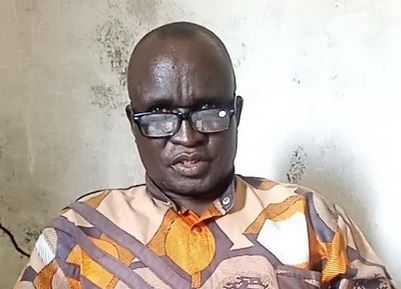The Prelate of Grace Gospel Church in Torit, the capital of Eastern Equatoria State, has accused politicians and local leaders of being behind the persistent communal and intercommunal conflicts in Eastern Equatoria State and across South Sudan.
Bishop Joshua Lokurudek says countless peace dialogues have been held by many communities and agreements signed to end conflicts but cattle raids and cyclic revenge killings only escalate and continue, discouraging peace efforts.
According to the religious leader, politicians instigate violence to cling to power.
“There are leaders in several places who add fire to conflict. One (politician) will want to be in a position and will go underground to instigate conflict here and there. Several times we organized peace and reconciliation dialogues and just after three months, another fire is started and another conflict emerges,” he said. “The youth do not know anything and if you tell them something in another way, they will immediately act ruthlessly and tomorrow we blame them for not listening. The truth has to be told to our people and let the law take its course on the wrongdoers.”
According to the clergyman, in Eastern Equatoria State, they have carried out several peace initiatives but they collapsed only after a couple of months with fights erupting again.
“When we again follow up, they will push everything to the politicians because they go and mingle things. That is why some people normally say that politics is a dirty game it is indeed very dirty,” he explained. “The politicians bring the dirt to the lives of the people, they will poison people to fight, to hate, and they cannot forgive each other and see themselves as enemies.”
When asked about the challenges religious leaders face in reconciling communities, Bishop Lokurudek said one of the biggest hindrances is the lack of transport to reach far-flung areas where conflicts take place and there is no presence of authority.
“Also, when we go to faraway places, the team needs water and food because you cannot risk sending them hungry,” he explained. “Genuine peace requires the contribution and collaborative efforts between the civil society, religious leaders, and the government. When government officials go alone, they cannot manage because they create confusion.”
The bishop said the government has been excluding them from cross-border peace initiatives yet they expressed readiness to participate.
“If the government wanted us to be there, the hands of the church are long we can bring churches from Uganda, South Sudan, and both governments can sit together and people talk,” he stated. “Everyone deserves his or her right to resolve their cross border conflicts. However, if the government does not like it, then, we as a church will involve ourselves so that they do not recognize us. They need to invite us.”
The prelate also said that churches have no money to carry out their activities and that the government used to support them in the past but now lacks money too.
“We shall try to lobby for funds for activities from NGOs, the government, and our donors who have been supporting the church,” Bishop Lokurudek concluded.




